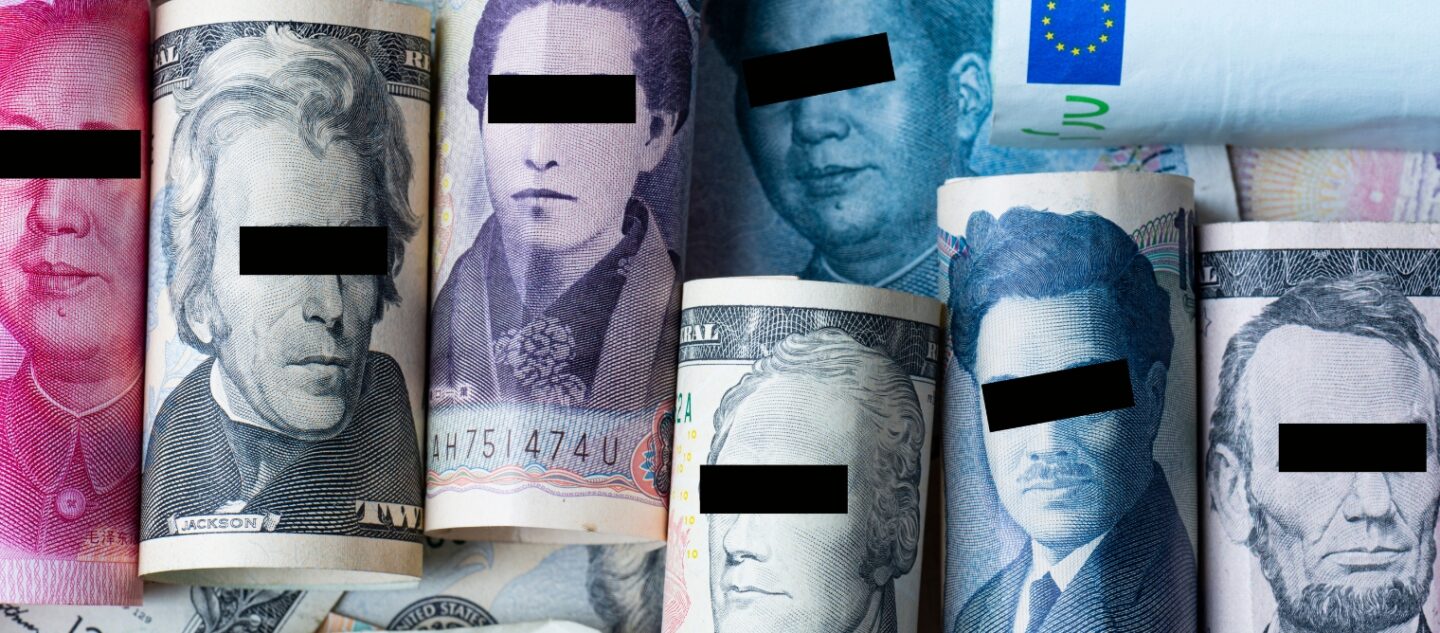
Challenging dogmatic narratives in VC, with Fergal Mullen – Part 2
Fergal Mullen's challenges entrenched dogmas in venture capital, urging a more thoughtful and individualized approach...

by Camilla Erencin, Simon J. Evenett, Pierre Ledan, Felix Reitz Published 27 March 2024 in Crux of Capitalism • 5 min read
Our economic textbooks teach us that in markets where entry and exit are costless, perfect competition among firms will result in a tendency for economic profits (EP) to be eliminated. On this view, evidence of sustained positive economic profits implies that some firms have and exploit market power, which harms buyers and distorts resource allocation.
Nations with commercially unassailable superstar firms that make sustained economic profits are said to have problematic “winner takes all” dynamics. The “Magnificent 7” firms in the USA are said to be a leading example. But are economic — opposed to accounting — profits concentrated as well? As we have seen in earlier Insights, economic profits (EP) and accounting profits (AP) dynamics can diverge in meaningful ways.
Leveraging the Crux of Capitalism’s data set spanning 21 countries, we employ a bottom-up firm-based methodology to examine the concentration of EP creation by publicly-listed superstar firms over a 5-year period, 2018 to 2022. We computed two metrics:
Similar shares were computed for nine sectors. We do not exclude firms with a negative EP. This pulls down the total national (or sectoral) EP and increases the computed shares (i) and (ii) outlined above.
To fix ideas, we first examined the distribution of economic profits in the USA in 2022, the latest full year for which EP data is currently available. . While there is an upper tail of highly profitable firms earning more than $1bn in EP, 57% of publicly-listed US firms are destroying value (have negative EP). Computing the shares mentioned above reveals the concentration of the national EP in highly profitable firms. Repeating this analysis for all 21 economies in our project reveals the following three findings:
First, in 15 out of 21 countries, the top 5% of publicly listed firms generate over 100% of aggregate (net) EP. In 2022, superstar firms in eight economies including Canada, India, Korea and Singapore accounted for over 140% of total EP in their respective countries. Meanwhile, superstar firms in Brazil, the Netherlands, Russia, Switzerland and the USA had combined EP generation below 100% of national EP totals in 2022. Despite the prominence of the “Magnificent 7,” the top 5% of US firms created “only” 99% of net EP in 2022, putting them toward the lower end of 21 economies.
Second, a different pattern emerges when a $1bn threshold is used to identify superstar firms. On this metric, economic profit concentration tends to fall when compared with the total national EP generated by the top 5% most profitable firms. Divergent results arise in the five biggest economies in the world: the United States, China, Germany, Japan, and India. Only the US has similar profit concentration in both first and second metrics; the other four behemoths have lower levels. One reason is that US firms tend to be bigger than their international peers, with more than 5% of companies crossing the 1bn in EP mark

“An emphasis on 'excess' profit creation may overlook deficiencies in the disciplining mechanisms for value-destroying firms.”
Third, the top 5% of most profitable firms generate over 100% of total sectoral EP in six out of nine cases. In 2022, industrials had the highest EP concentration (142%), probably due to economies of scale in production processes.
Communication services also saw a high EP concentration (128%), on the back likely of strong network externalities. This sector includes tech giants such as Google and Meta Platforms Inc, as well as telecom players such as Verizon. The utilities sector had negative net EP in 2022, possibly due to the fallout from the Russian invasion of Ukraine. Overall, sectoral economic profit concentration is not confined to tech sectors.
While the reasons for EP generation may differ from country to country, concentration of economic profit is a pervasive feature of contemporary capitalism. Importantly, concentration is not a uniquely American or tech phenomenon — casting doubts on critiques of capitalism that point to the exceptionalism of either.
Where positive economic profits are the result of unique corporate capabilities and hard-to-replicate strategies, rather than regulatory capture or policy-induced barriers to entry, they may reflect benefits to buyers and the broader economy. EP is like cholesterol, some can be good, some bad. Further work is needed to tease out the relative importance of each.

Ph.D. candidate in Economics at the University of St.Gallen
Camilla Erencin is a Ph.D. candidate in Economics at the University of St.Gallen and holds a M.Sc. in economics from the University of Warwick. Her research focuses on corporate performance and competitive strategy under uncertainty.

Professor of International Trade and Economic Development at the University of St. Gallen
Simon J. Evenett is currently a Professor of Economics at the University of St. Gallen and on 1 August 2024 will join the Faculty at IMD. He is also Co-Chair of the WEF’s Global Council on Trade & Investment and the Founder of the St. Gallen Endowment for Prosperity Through Trade, home of two of the leading independent monitors of how governments shape international business.

Managing Partner, Virgo Venture Capital
Pierre Ledan is a master’s student in the Strategy and International Management program at the University of St. Gallen, Switzerland, and holds a bachelor’s in economics and statistics from the University of Chicago, USA. Pierre focuses on corporate strategy and venture building.

PhD candidate in international affairs and political economy at the University of St Gallen
Felix Reitz is a PhD candidate in international affairs and political economy at the University of St Gallen, Switzerland, and holds a Master’s in international political economy from the London School of Economics and Political Science. Reitz focuses on fiscal policy, international taxation, and corporate strategy under uncertainty.

20 February 2024 • by Raphaël Grieco, Karl Schmedders in Crux of Capitalism
Fergal Mullen's challenges entrenched dogmas in venture capital, urging a more thoughtful and individualized approach...

20 February 2024 • by Camilla Erencin, Simon J. Evenett, Pierre Ledan, Felix Reitz in Crux of Capitalism
Data from the Crux of Capitalism finds that the ‘Magnificent Seven' “tech” stocks – Alphabet, Amazon, Apple, Meta, Microsoft, Nvidia, and Tesla – together accounted for 32% of the economic profit of...

13 February 2024 • by Camilla Erencin, Simon J. Evenett, Alexander Gruber, Felix Reitz in Crux of Capitalism
As interest rates rose in many economies, fears of a “hard landing” grew. We examine whether a tighter monetary policy has translated into more firms going into corporate distress by tracking three...

6 February 2024 • by Camilla Erencin, Simon J. Evenett, Alexander Gruber, Felix Reitz in Crux of Capitalism
We examine whether China’s tremendous economic growth this century is reflected in significant economic profitmaking by its firms. ...
Explore first person business intelligence from top minds curated for a global executive audience